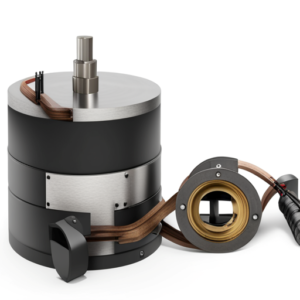Introduction to ECM Electronically Commutated Motor
Introduce ECM (Electronically Commutated Motor) technology and its significance in various industries. Explain its development, impact, and relevance in today’s technological landscape.
ECM Electronically Commutated MotorDefinition and Functionality
Provide a clear definition of ECM motors and how they operate differently from traditional motors. Explain the concept of electronic commutation and its advantages.
Evolution of ECM Technology
Trace the development of ECM motors from their inception to their current state. Highlight key milestones and technological advancements that have shaped their evolution.
Technical Specifications of ECM Electronically Commutated Motor
Detail the technical specifications and configurations of ECM motors, including motor types, power ratings, voltage requirements, and control options.
Motor Types
Discuss different types of ECM motors, such as brushless DC motors, synchronous motors, and permanent magnet motors, blower motors. Explain their unique features and applications.
Power Ratings and Voltage Requirements
Provide information on the power ratings and voltage requirements of ECM motors, including their compatibility with different power sources and electrical systems.
Control Options
Explain the various control options available for ECM motors, such as variable speed control, direction control, and feedback mechanisms. Discuss how these controls enhance motor performance and efficiency.
Applications of ECM Motors
Explore the diverse range of applications for ECM motors across various industries, including HVAC systems, refrigeration, automotive, and industrial equipment.
HVAC Systems
Highlight the importance of ECM motors in HVAC systems for their energy efficiency, precise control, and quiet operation. Discuss their role in improving indoor air quality and comfort.
Refrigeration and Cooling Systems
Discuss how ECM motors are used in refrigeration and cooling systems to regulate temperature, airflow, and humidity levels. Explain their contribution to energy savings and environmental sustainability.
Automotive Industry
Examine the use of ECM motors in automotive applications, such as electric vehicles, hybrid vehicles, and powertrain systems. Discuss their role in enhancing vehicle performance and efficiency.
Industrial Equipment
Describe the applications of ECM motors in various industrial equipment, such as pumps, fans, and compressors. Explain how they improve operational efficiency and reduce maintenance costs.
Benefits of ECM Motors
Highlight the key benefits of ECM motors compared to traditional motors, including energy efficiency, reliability, longevity, and precise control.
Energy Efficiency
Discuss how ECM motors offer higher energy efficiency and lower operating costs compared to traditional motors. Explain how they achieve energy savings through variable speed control and optimized performance.
Reliability and Longevity
Explain how ECM motors are designed for durability and reliability, with fewer mechanical components and reduced wear and tear. Discuss their longer service life and lower maintenance requirements.
Precise Control
Highlight the precise control capabilities of ECM motors, including variable speed control, torque control, and position control. Discuss how these capabilities improve system performance and responsiveness.
Challenges and Limitations of ECM Motors
Acknowledge the challenges and limitations associated with ECM motors, such as initial cost, compatibility issues, and complexity of control systems.
Initial Cost
Discuss how the initial cost of ECM motors may be higher than that of traditional motors due to their advanced technology and electronic components. Explain how long-term energy savings and operational benefits offset this cost.
Compatibility Issues
Address compatibility issues that may arise when integrating ECM motors into existing systems or retrofitting older equipment. Discuss the importance of proper system design and compatibility testing.
Complexity of Control Systems
Explain how the complexity of control systems for ECM motors may require specialized knowledge and training for installation, programming, and maintenance. Discuss the need for skilled technicians and support resources.
Latest Innovations and Future Prospects
Highlight recent advancements and innovations in ECM motor technology, as well as future prospects and potential developments in the field.
Advanced Control Algorithms
Discuss the development of advanced control algorithms for ECM motors, including predictive maintenance, adaptive control, and machine learning techniques. Explain how these algorithms improve motor performance and efficiency.
Integration with IoT and Smart Systems
Explore the integration of ECM motors with Internet of Things (IoT) platforms and smart systems for remote monitoring, diagnostics, and optimization. Discuss how this integration enhances system efficiency and user experience.
Energy Harvesting and Regenerative Systems
Examine the potential for ECM motors to be integrated into energy harvesting and regenerative systems, such as renewable energy sources and energy storage devices. Discuss how this integration contributes to sustainability and energy independence.
Expert Insights on ECM Motors
Include quotes or insights from industry experts, engineers, and researchers on the significance and future prospects of ECM motors.
Industry Perspectives
Feature quotes from industry leaders and experts on the benefits, challenges, and future directions of ECM motor technology. Provide diverse perspectives from different sectors and applications.
Engineering Insights
Include insights from engineering professionals and researchers on the technical aspects of ECM motor design, control, and optimization. Discuss emerging trends and areas of innovation in the field.
Conclusion
Summarize the key points discussed in the article and emphasize the importance of ECM motors in driving efficiency, sustainability, and innovation across various industries.


